
Renaissance School 2023-2024 Faculty Handbook RENAISSANCE SCHOOL 418 East Jefferson Street Charlottesville, VA 22902 (434) 984-1952 www.renaissanceschool.org
Renaissance School admits students of any race, color, gender identity, sex, sexual orientation, nationality, marital status, disability, age, religion, or ethnicity in the administration of its educational policies, scholarship programs, hiring and admissions policies, financial aid program, or any other programs administered by the school.
TABLE OF CONTENTS
Page 1 Mission Statement, Vision Statement, Policy Statement
FACULTY RESPONSIBILITIES
Page 3 School arrival, School Policies, Classes
Page 4 School Events, Daily Assemblies
Page 5 Arts Practicum, Ninth Week Activities, Dress Code
Page 6 Computer and Cell Phone Use
Page 7 Faculty Policies for Computer Use
Page 8 Social Networking, Abusive Language
Page 9 Discipline, Faculty Advisors
Page 10 Student Tardies and Absences, Sickness During School,
Page 11 Visiting Students, Faculty Absences and Substitutes
Page 12 Classroom Expectations
Page 13 Appropriate Behaviors
Meeting with Students, Communication, Figure Study, Curriculum, AI Policy
Page 14 Focused Study
Page 15 Focused Study Guidelines
Page 16 Grades, Grading Scale
Page 18 Semester Exams , Reimbursement, Activity Fees
Page 19 Calendar
POLICIES AND PROCEDURES
Page 20 Sexual Harassment Policy
Page 21 Renaissance School Anti-Bullying Policy
Page 22 Filing a Complaint
Page 23 School Personnel Responsibilities & Intervention Strategies
Page 24 Faculty Evaluation Process
Page 26 Building Security, Fumes, Elevator, Emergency Action Plan
Page 28 Lockdown Procedures
Page 31 Renaissance School Description
Page 32 Renaissance School Leadership Team
Page 33 Renaissance School Faculty & Staff
MISSION STATEMENT
The mission of Renaissance School is to provide curious and engaged students a rich interdisciplinary learning environment focused on critical thinking, creativity, civic engagement, and collaboration.
Through small class sizes, a dynamic curriculum, and differentiated teaching, Renaissance School fosters student achievement and academic success while developing a sense of independence and responsibility.
Renaissance School cultivates a diverse community of learners where differences are celebrated. The experience of diversity allows our community to build a culture that strengthens understanding and value for differences.
VISION STATEMENT
In an environment where learning and ideas are celebrated, we nurture high school students to develop a holistic and strong sense of self for a life of deep insight, creativity, excellence, civic engagement, and social responsibility.
POLICY STATEMENT
Any changes to policies, procedures, and protocols deemed necessary by the Head of School will supersede the ones found in this handbook.
1
Faculty Responsibilities
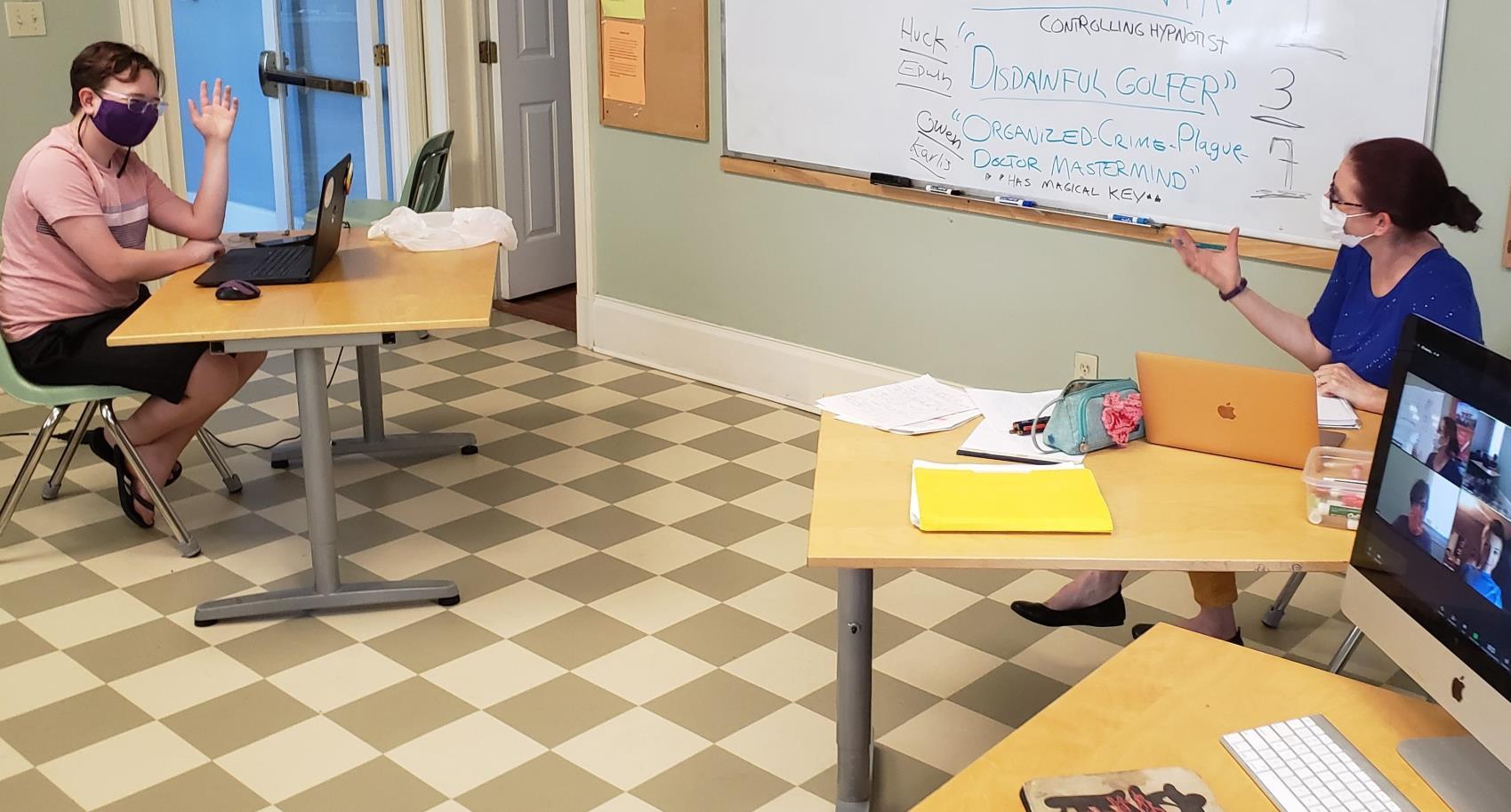
SCHOOL ARRIVAL AND DEPARTURE
Faculty should arrive well before the start of their first class and ensure their presence throughout the entirety of the class. Upon arriving and departing school, faculty members must check in/check out with the Office Manager.
SCHOOL POLICIES
School policies, procedures, and expectations as outlined in the Student Handbook and Faculty Handbook are to be applied during school hours. Faculty are to lead by example and are expected to correct inappropriate behavior and/or attitude while in school (during and outside of class time). Consistency in faculty correction of behavior throughout the year is of primary importance.
Faculty should be fully conversant with the contents of the Faculty and Student Handbooks.
CLASSES
1. The faculty will prepare and publish annual syllabi. These syllabi should be submitted to the Dean of Academics prior to the start of school.
2. Faculty syllabi should note clear course objectives, expectations and goals, as well as clear grading procedures. This should include the percentages for grade distribution. It is school policy that courses will have test/quiz values no higher than 40% of the quarterly grade.
3. During the school year, faculty will prepare weekly syllabi/assignments to be distributed to students and digitally filed using Google Classroom. These weekly assignments should be uploaded to Google Classroom by 9 am every Monday for that week. Students should have at least 24hour notice of homework assignments.
4. Faculty should make sure their tests and projects are noted on the shared Google Calendar each week. This will be administered by the Assistant to the Head, but it is the faculty’s responsibility to make sure it is updated and accurate for each of their courses.
3
5. Curriculum planning and daily lesson plans are the responsibility of individual faculty members and absolutely crucial to the successful learning experience at Renaissance School. Classes are to be active and dynamic, not filled with busy work. Teachers should use class time for instruction, guided practice, and assessment.
6. Classes should never serve as a platform for personal political or religious views. The discussion of politics and religion is an important part of education especially in a historical context, but should be presented in course areas where it is part of the academic curriculum and not part of a personal agenda.
7. Teachers should be on time and present in the classroom with their students during class time. Students should never be left alone without a teacher or substitute during a class period or Focused Study. Students should never be released from class early. Using scheduled class time for the personal use of computers, telephones, etc. is unacceptable.
8. All substitutes must be cleared by the Academic Dean with the Head of School. Emergency lesson plans should be provided to the Dean of Academics by the start of the school year and will be kept on file. Classes should proceed forward in the curriculum and not be halted by an absence.
Abuse or negligence of these policies, as well as failure to produce syllabi and assignment sheets, is grounds for dismissal.
SCHOOL EVENTS
The faculty are expected to attend all student-related school events and performances, including parent/teacher conferences, Open Houses, InService days, and Senior Thesis defenses. Understandably, there will be occasions where attendance is not possible, and timely notification should be sent to the Head of School.
Daily Assemblies
Faculty should attend daily assembly if they are in the building during that time.
4
Arts Practicum is an opportunity for students to experience interdisciplinary and experiential learning through a short series of classes Every faculty is expected to teach, oversee, or attend as a chaperone 2-3 times per academic year.

Ninth Week Activities

Faculty members are expected to rotate chaperoning of all trips. In other words, the same few faculty members should not be expected to attend all trips. If faculty members are unable to go on school trips due to limitations on the number of participants, faculty should expect to be assigned duties at school during this time. Duties will equate to classroom time. In the event that a Ninth Week is spent on activities close to home or at school, faculty members are expected to participate.
DRESS CODE
How we present ourselves sets the tone for the expectations of our students. Therefore, all faculty members should dress appropriately and professionally. Teaching attire should be comfortable but not so relaxed as to give the appearance of neglect or disregard for the classroom setting. Additionally, we often have visitors to the school, and the presentation of staff and faculty is important. At the very least, faculty dress should rise above the standards set by the student dress code:
Arts Practicum
5
"During school hours, whether on campus, in physical activity class, or on the Downtown Mall, students are expected to reflect respect for the values of Renaissance School. Accordingly, students should dress properly for school and look neat and clean.
Students may wear nice jeans or pants. Shorts, spaghetti straps, and crop tops at the belly button are acceptable. Students may not wear T-shirts or sweatshirts with explicit language, messages targeted toward hate, depicting drugs, alcohol, or tobacco, or degrade the integrity of individual groups. Undergarments should not be exposed. Hats that hide the eyes or face should not be worn during school hours; otherwise, they are permitted between classes and at the discretion of the teacher during class. Sunglasses and bare feet are not allowed.
It is important to remember school should be considered a professional learning environment for all and how we present ourselves matters in all professional settings.”
COMPUTER AND CELL PHONE USE
Computers: Student computer use during class is at the discretion of each faculty member. If it is deemed valuable and/or enriching to the learning environment, then it is the faculty member’s responsibility to monitor use. Inappropriate use of computers for online chatting or game playing will result in immediate loss of computer privileges for the involved student(s). Careful consideration should be used when determining computer use in class.
Cell Phones: Faculty cell phones should be turned off or muted during school hours while in the building. Cell phones should not be visible to students, and faculty should not talk or text during class. Phone conversations may be held outside of class time, in the front office, the teacher’s workroom, or outside. Students should never be recorded or videotaped unless you are helping with Renaissance School social media. If you are taking images for social media, photos should be forwarded to the social media coordinator and then deleted from your phone.
If a student has a cell phone in the classroom, faculty must immediately remove the phone and turn it in to the Head of School.
6
FACULTY POLICIES FOR COMPUTER USE
Renaissance School maintains computers and wireless internet access for the educational use of students and faculty.
Faculty members are provided with @renaissanceschool.org email accounts. This email account should be used for all school communication with faculty, students, and parents. Other personal email accounts should not be used for school communication. The @renaissanceschool.org email accounts and passwords are maintained by the school. Faculty members have no expectation of privacy in any communication they create or send using this email account.
Faculty are expected to check school email regularly and at a minimum of twice per day. Faculty is also expected to respond to emails promptly. All teacher-student and teacher-parent communication should be sent with the Renaissance School email account and copied to the Head of School (cc or bcc).
Faculty members should not be involved in any form of social networking with currently enrolled students. Additionally, faculty members are not to text students or parents. All correspondence should go through email or Google Classroom with the Dean of Academics having access to the account.
Faculty are prohibited from doing the following on school computer equipment, including iPads, or when using the school wireless network:
•Damaging, changing, or tampering with any part of the school’s computer system, hardware or software
•Copying copyrighted software
•Printing documents not related to schoolwork
•Adding, deleting, or altering files or installing programs without permission from the Head of School
•Engaging in non-academic uses of the computer system, such as game playing and chatting, or using social media
•Accessing, transmitting or downloading large files, including "chain letters" or any type of "pyramid schemes"
“ 7
to any unsolicited online contact
•Accessing or storing illegal or explicit material or material that is potentially harmful to the user, the computer system or others


•Using the Internet or e-mail to solicit or conspire about illegal activities or substances
•Making harassing, threatening, prejudicial or discriminatory statements over the computer system
•Accessing, storing, transmitting or distributing offensive, indecent, obscene or pornographic materials in any form
•Circumventing or attempting to circumvent the security measures on any school computer
•Introducing any form of a computer virus to any school computer
•Using the computer system or the Internet for commercial gain, political purpose, or to advocate violence or discrimination. This includes “sharing” articles or news stories through social media. If a faculty member notices a security problem, notify the Business Manager immediately.

SOCIAL NETWORKING
Faculty members are not to be involved in any form of social networking with currently enrolled students.

ABUSIVE LANGUAGE
It is the responsibility of faculty to correct inappropriate language during school hours (in the class and between classes). We aim to teach students behavior in an academic setting and inappropriate language is one of the most common offensive acts made by students.
•
Responding
8
DISCIPLINE
It is each teacher’s responsibility to ensure that the Student Code of Conduct and the Discipline Policy outlined in the Student Handbook are consistently applied. The Student Handbook outlines school (as opposed to classroom) policies and rules as they relate to student behavior; therefore, it should be used as the minimum for behavior expectations in the classroom. Failure to follow school procedures as documented in this handbook by any student should be documented on the Student Impact form and reported to the Head of School.
There are two ways to report student misconduct: the How I Impact Others form and speaking directly to the Head of School.
Discipline and morale are undermined if any of us turns a deaf ear or a blind eye on inappropriate behavior, dress, or observance of computer or Focused Study rules.
It is the faculty’s responsibility to serve as role models and to talk with the students about the need for school rules. Faculty should make it clear to their students that they understand and support the Honor Code at Renaissance School.
With the student's signature, all tests and major papers are pledged as follows:
It is recommended that the pledge is noted on all tests and quizzes.
FACULTY ADVISORS
The Dean of Students oversees the student advisory. Each faculty member may be assigned student Advisees. The Faculty Advisor serves as the student’s first and best advocate when questions or problems arise in the school setting. Advisor/Advisee meetings will occur once a week after lunch during a 30-minute period.
“On my honor, I have neither given nor received help on this work.”
9
Faculty members are not hired as licensed therapists or school counselors and should not advise as such. Additionally, it is inappropriate for a Faculty Advisor to “parent” a student or to guide a student through personal or family struggles. The role of Faculty Advisor serves to listen and lead through example.
Advisors counsel students on academic performance, behavior, and peer and student/teacher relationships. The Advisor works directly with the Dean of Students on a regular basis. The Dean of Students should be informed of all communication between faculty and student. The Dean of Students will be in communication with the Head of School. The Advisor serves as a coach and guide for the student during the school year.
All conversations between a faculty member and a student must be both observable and interruptible.
STUDENT TARDINESS AND ABSENCES
If a student is late for a class, the Office Manager should be notified immediately (do not wait for the end of class). Building restriction due to tardiness is issued by the Office Manager as a result of documented tardiness.
When a student has a planned absence, he/she/they will bring faculty a Planned Absence Form to fill out and sign allowing absences from your class. It is the student’s responsibility to obtain and complete all work to be missed during time away from school. Absent students will be noted on the attendance clipboard by the Office Manager’s desk.
Students missing from class (remotely or in-person) for more than one-third of the quarter will be at risk of not receiving credit for that quarter. The Head of School will notify faculty of students with exemptions due to health reasons.
SICKNESS DURING SCHOOL
Any student or faculty feeling ill during the school day must go home or to the doctor and may return once cleared by a health professional. Faculty are responsible for finding coverage for their classes and notifying the Office Manager/Assistant to the Head.
10
VISITING STUDENTS
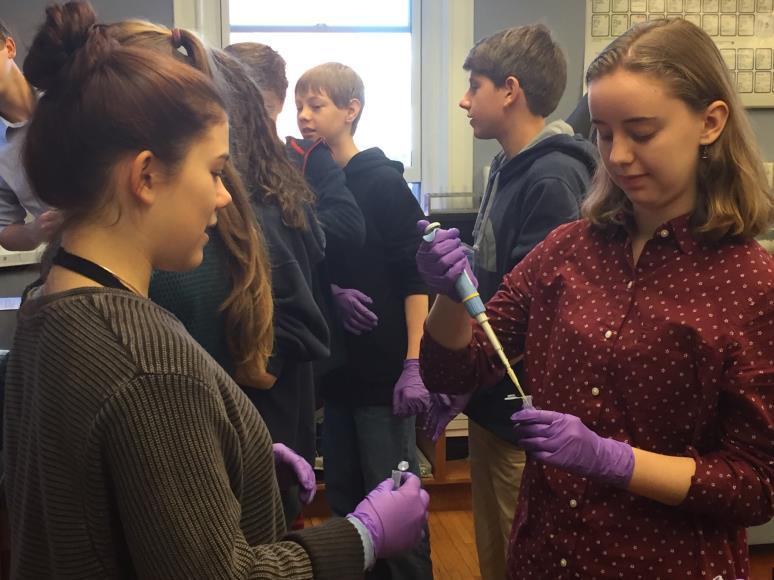
When a prospective student visits Renaissance School you will receive a Visiting Student Survey form by email as soon as we know of the visit. Please fill out the form promptly and return to the Admissions Director.
FACULTY ABSENCES AND SUBSTITUTES
If a faculty member must be absent from school, miss a class, be tardy for a class or is unable to open/close the school as assigned, he/she/they are responsible for arranging for, and paying if needed, a qualified substitute. The substitute should be approved in advance by the Dean of Academics. In an emergency, the Office Manager/Assistant to the Head will send out an email to the current faculty. The Office Manager/Assistant to the Head must be notified of a teacher’s absence as soon as possible.
It is not the responsibility of the administrators to find a substitute or serve as a substitute themselves for absent faculty.
Individual faculty members are always responsible for remunerating the substitute. The cost will be $50/class and can be deducted from the teacher’s monthly paycheck or paid directly by the teacher.
Faculty planned absences must be approved in advance by the Head of School. If a teacher fails to show up for his/her/their class a dated and signed letter noting the reason for the absence will need to be presented to the Head of School within 24 hours of the absence. This letter is kept on file and may serve towards a decision of termination. Multiple absences from class or school events may serve as grounds for immediate termination.
11
CLASSROOM EXPECTATIONS
Cleanliness
It is the responsibility of each faculty member to keep his/her/their classroom and mailbox clean, neat, and tidy at all times. If you share a room with another teacher, please be sure to put away your materials and clean the whiteboards.

On a daily basis, student possessions should be removed from the classroom, chairs should be straightened, trash emptied, and tables and floors free of debris.
Students should be reminded to keep their belongings in their cubbies, except for books and supplies that are needed until the next break.
No food or drink is allowed outside of the lunchrooms, with the exception of bottled water or drinks with spill-proof lids. No chewing gum is allowed in classrooms or in any other area of the school.
The faculty should be leaders in keeping Renaissance School clean and beautiful. It is the faculty’s responsibility to police and correct this behavior when we see it.
Additionally, faculty are expected to tidy the common areas outside of their classrooms each day prior to leaving. This includes throwing away trash, straightening up chairs, stacking books, and papers. Faculty should always ask for student assistance with this responsibility it is a teaching moment.
12
Meeting with Students
Faculty should never have a closed-door private meeting with any individual student. Conversations observable and interruptible. Faculty serving as Advisors should always meet with their students during school hours at a public location. Going for walks is encouraged.
Communication
All teacher-student and teacher-parent communication should be sent with the Renaissance School email account and copied to the Head of School (cc or bcc). All group correspondence to students or parents should be “blindcopied” to protect the school and to respect the privacy of Renaissance School families.
There should be no text exchanges between the faculty and the students or their parents.
Figure Study in the Classroom
Renaissance School students will study the human form and anatomy in its science courses and in the context of history (art and religion). Renaissance School aims to develop the technical skills and the tools necessary to communicate concepts and experiences across various media. Renaissance School does not, however, allow student-created works of any medium that discusses, describes, or depicts the nude figure.
Curriculum
Each teacher must keep the Dean of Academics up to date and current with weekly lesson plans by sharing classes through Google Calendar. This should be set up prior to the start of the school year.
AI policy
While AI is never to be a substitute for creative or critical thinking, Renaissance School embraces the opportunities AI can provide in both learning and innovative teaching. Because the role and use of AI varies significantly among the wide range of disciplines offered at Renaissance School, faculty are encouraged to be explicit in their expectations when designing curriculum and drafting the course expectations on the syllabus.
13
Faculty are encouraged to consider AI content detectors in homework collection and there should never be an assignment with more than a 90% match. Such a match will require a complete assignment re-do.
If AI is used inappropriately in more than one occasion, the faculty member should email the Head of School with details of both uses and communication and approach after the first offense.
FOCUSED STUDY
Faculty are in charge of running Focused Study and are to be available to students during Focused Study at least once a week for each course they teach.
Ninth, tenth, and eleventh graders are required to attend Focused Study. Twelfth grade students are excused from Focused Study if they are in good academic standing (no F's or D's), and with parent permission.
Focused Study is a CLASS and is designed to be a quiet and productive period during the school day when students can work on assignments, meet with teachers, or develop study skills with instructors.
Ninth, tenth, and eleventh grade students are excused from the Focused Study room to meet with individual teachers, or to work in the art or science room, only when they present to the teacher in charge at the beginning of class a signed note from the lab teacher present in the alternate space.
Focused Study rules apply to ALL Focused Study classes. The focused study rules are school rules and therefore supersede individual faculty expectations.
Attendance should be taken at each Focused Study and any tardies or absences should be reported to the Office Manager immediately. Focused Study passes to meet with a faculty member should be given at the end of each class.
14
FOCUSED STUDY GUIDELINES
FOCUSED STUDY IS A MANDATORY TEACHER-LED CLASS FOR GRADES 9, 10 AND 11. Therefore, all class and school rules apply, including tardiness.
Students should use the first five minutes of class to:
Talk with friends
Use the restroom
Get needed books and materials for class
Make copies
Check email and Google Classroom for homework updates
Misuse of computers may result in the loss of computer privileges at school.
FOCUSED STUDY IS A QUIET PERIOD. No talking except to ask the teacher a question. If students need to work on a group project for a specific class, a pass from the teacher of that class will need to be obtained. If the Focused Study teacher determines the group is not working and/or is being distractingly loud, students will return to the Focused Study room and work independently.
If a student has “nothing” to do, they will need to obtain a pass from the Head of School stating they have nothing to work on.
15
GRADES
Faculty should make it very clear to their students, and to the students’ parents, what is expected in the near and far term. They should maintain attendance records, including records of tardies. Faculty are expected to also maintain grade records documenting student progress, participation, and credit earned. At any point, the Head of School or Dean of Academics may request to see your grading process and distribution.
Grade reports should be carefully proofread and turned in on time.
Student work should be graded and returned to the students promptly. Students should never be in the dark about their grades and, if requested, should always have access to their current academic standing.
The primary function of grades is to provide a transferable record of a student’s performance that other schools can use in making decisions about that student’s ability to enter their curricula. At Renaissance School we observe high absolute standards when grading a student’s performance.
While the student is attending Renaissance School, we consider direct contact between the student and teachers (including semester comments) much more important than the actual grade in evaluating the student’s learning progress. Parents take teacher comments seriously and use them as the basis for assisting their child in maximizing the Renaissance School learning opportunity.
When writing grade reports, make sure you explain why the student earned the assigned grade and what they can do to improve that grade.
Renaissance School Grading Scale
All courses at Renaissance School are Honors level courses. A teacher may recommend Advanced Honors or the Standard level based on student performance in the class. This recommendation will be made under the guidance of the Dean of Academics and Head of School and will be discussed with the student and parent prior to the end of the grading period.
16
Grade A: Mastered (91% - 100%): (eligible for distinction)
Student demonstrates and articulates a thorough factual and conceptual understanding of course material.
Grade B: Learned (81% - 90%): (eligible for distinction)
Student demonstrates factual and conceptual understanding of course material with some ability to apply concepts.
Distinction: Students performing at the Mastered and Learned levels will be encouraged by their teacher to initiate independent work outside of normal course material to further their ability to apply and integrate course concepts. Demonstrated ability to integrate concepts with other disciplines will earn Distinction. The Distinction Award will be noted on the student transcript next to the appropriate semester grade.
Grade C: Achieved (71% - 80%):
Student completes assignments and demonstrates a consistent understanding of course material.
Grade D: Probationary (65% - 70%)
Student shows serious difficulty in understanding and using the course material. A lack of effort may be indicated.
Grade F: Failed (0% - 64%)
Student has incomplete assignments and failure to understand the course material.
Incomplete:
A temporary status for students with enough excused absences to justify the conclusion that they need extra time (after the normal end of the quarter or semester) to complete assignments/exams before being assigned a grade. Under normal circumstances, grades must be completed within two weeks of the end of the quarter. The Head of School, with the Dean of Academics, will determine which, if any, students qualify for Incomplete status.
SEMESTER EXAMS
The exam schedule will be posted two weeks before exams. Exams must be submitted to the Dean of Academics by the Wednesday before exam week. Exams should be designed for two hours. All exams should be proofed and practice timed.
The three days before exams are dedicated to exam review. No new material should be taught on those days.
Faculty will work with the Head of School and Dean of Academics to cover the administration of exams. Faculty of exam classes should plan to cover multiple exam sessions. Faculty of non-exam classes may be asked to fill in to cover exams.
Second semester seniors will not have exams.
REIMBURSEMENT
Faculty have a classroom budget to spend on educational and classroom materials only. The Business Manager will keep a running tally of what is available to be spent on classroom materials. After confirming that there is money in the classroom budget to cover the expense, order requests for these materials should be emailed to the Office Manager, with the Head of School copied. The Head of School will follow up with any questions and/or will make a decision on the approval of the purchase. The faculty cannot be reimbursed for classroom supplies/materials that have not been pre-approved by the Head of School.
ACTIVITY FEES
Activity fees should be budgeted within the class budget. The exception is optional activities such as Model General Assembly. If trips or activities are taken outside of school which involves a student fee, faculty should notify the Business Manager. All money should be collected by the Business Manager. All outside trips should pay for themselves through student fees.
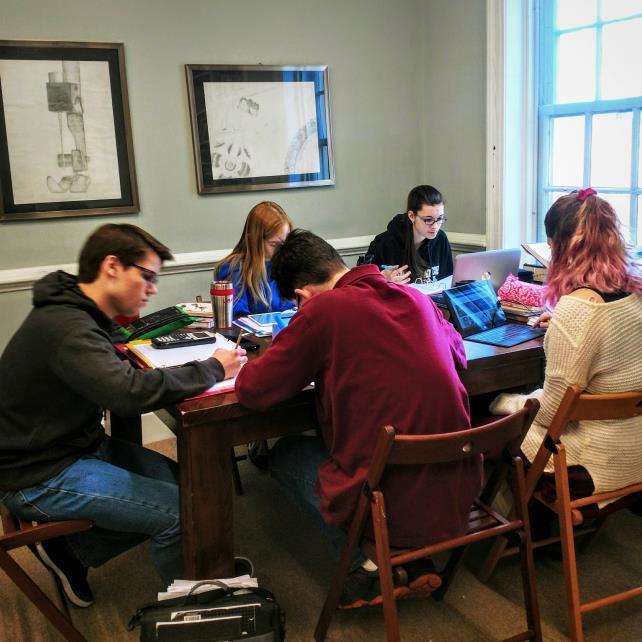
18
Calendar
Renaissance School faculty members are expected to use a Renaissance School Gmail account for all school correspondence and are expected to use Google Classroom and Google Calendar. All due dates for tests, projects, field trips, etc. should be put on the Google Calendar and shared with all faculty and administrators. This calendar is maintained by the Executive Assistant to the Head, but it is the faculty’s responsibility to check it often and make sure it is current. This enables the faculty to see what is happening in all classes and plan accordingly. Faculty should have their Google Calendar updated and shared prior to the start of school and maintained weekly.
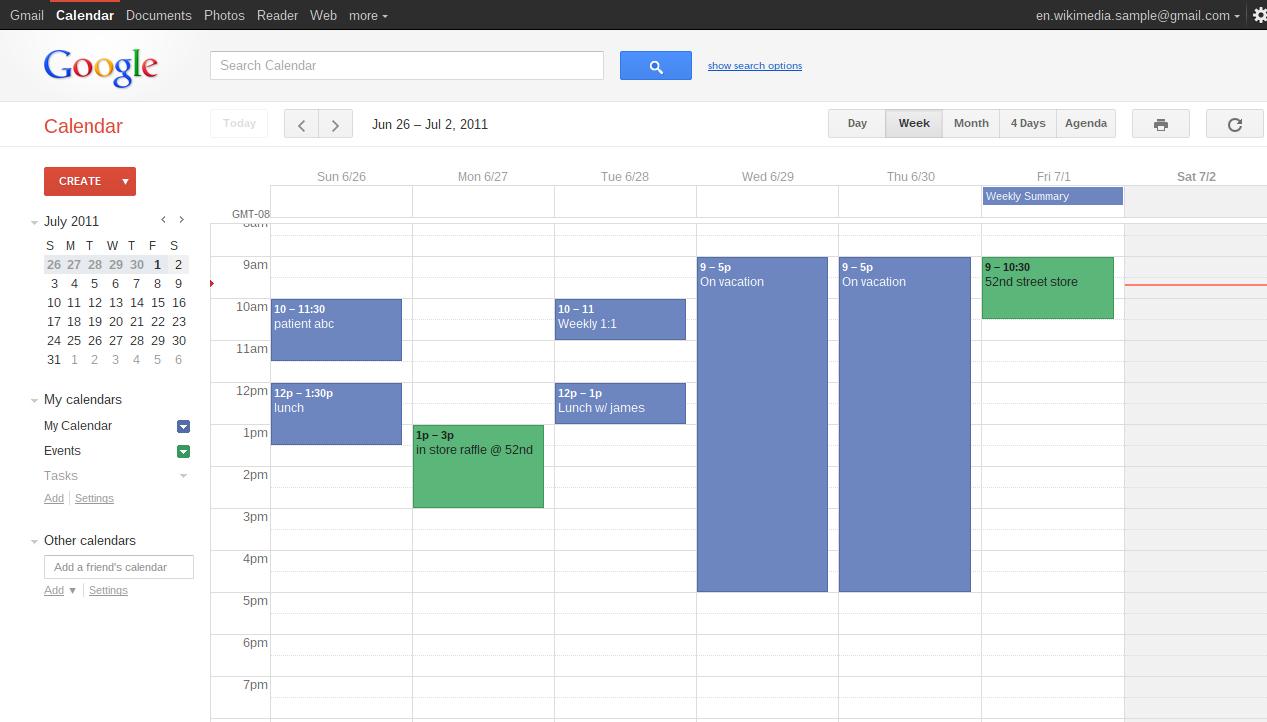
19
This Photo by Unknown Author is licensed under CC BY-SA
POLICIES AND PROCEDURES
Sexual Harassment Policy
Renaissance School strives to dedicate itself to creating and maintaining an atmosphere free of all forms of harassment or intimidation Every individual in the Renaissance School community shall be treated with sensitivity and respect and shall be entitled to work and learn without fear of intimidation, humiliation, and/or degradation from unwanted and unacceptable behavior.
This policy applies to relations between adults, between students, between adults and students, regardless of the individual’s gender and/or age.
Sexual harassment is not social or courting behavior. It is in part, or whole, best seen as an assertion of power through coercion or innuendo or as the result of a studentadult school relationship or student-student relationship.
To attempt to list all possible incidents of acts of sexual harassment would be futile. Sexual harassment can be very broadly described as unwanted and uninvited attention in the form of intimidation or coercion of an unwilling individual into sexual relations or favors real or perceived. It also encompasses the maintenance of a hostile atmosphere or any unwanted and uninvited attention.
It is always important to bear in mind that a power imbalance exists in a facultystudent relationship. This, coupled with students’ relative inexperience, requires all adult members of the Renaissance School community to display and live a strong sense of professional and institutional responsibility. In short, faculty and staff behavior with respect to students as well as to each other must be above suspicion.
The prohibition of sexual harassment is the law, and there is no choice for any organization but scrupulously to comply with Title VII and Civil Rights Act of 1964. There can be no hint of retaliation for legitimate reports of sexual harassment.
The reporting authority for all students is the Dean of Students or the Head of School. The reporting authority for all faculty is the Head of School. Reports will be strictly confidential. An investigation into any charge(s) will be conducted promptly. Anyone found to be in violation of this policy by the Head of School will be subject to appropriate action which may include separation from the School. Anyone who has made false accusations and/or accusations with the sole purpose of defaming may also be subject to separation.
20
Renaissance School Anti-bullying Policy
Renaissance School has an academic environment where respect and kindness are at the core of our interactions. Bullying and harassment of any nature are prohibited. Please review our conduct expectations and procedures below.
“
Defining Terms
Harassment, Intimidation, or Bullying - Any intentional written, verbal, graphic, or physical act that a person or group of people exhibited more than once toward a particular person and the behavior both causes mental or physical harm to the other person; and is sufficiently severe, persistent or pervasive that it creates an intimidating, threatening or abusive educational environment for the other student. Harassment can also mean violence within a dating relationship. It can include acts committed through the use of a cellular telephone, computer, personal communication device, or other electronic communication devices.
Types of Conduct
Harassment, intimidation, or bullying can include many different behaviors. Examples of conduct that could constitute prohibited behaviors include:
•Physical violence and/or attacks
•Threats, taunts, and intimidation through words and/or gestures
•Overt intent to ridicule, humiliate or intimidate toward another student or school personnel
•Extortion, damage or stealing of money and/or possessions
•Exclusion from the peer group, spreading rumors, ridicule, humiliation
•Repetitive and hostile behavior with the intent to harm others through the use of information and communication technologies and other Webbased/online sites (also known as “cyberbullying”), such as:
• posting slurs on Websites where students congregate
• sending abusive or threatening instant messages
• using camera phones to take embarrassing photographs of student/school personnel and posting them online
• using web sites to circulate gossip and rumors to other students/school personnel
• excluding others from an online group by falsely reporting them for inappropriate language to Internet service providers.
21
Harassment, intimidation, or bullying behavior by any student/school personnel at Renaissance School is strictly prohibited, and such conduct may result in termination of disciplinary action, including suspension and/or expulsion from school.
Filing A Complaint
Formal Complaint
Students, parents or guardians, and school personnel may file reports regarding suspected harassment, intimidation, or bullying. Such written reports shall be reasonably specific including the person(s) involved, number of times and places of the alleged conduct, the target of suspected harassment, intimidation and/or bullying, and the names of any potential student or staff witnesses. Such reports may be filed with any school staff member or administrator, and they shall be promptly forwarded to the Head of School for review and action.
Informal Complaint
Students, parents or guardians, and school personnel may make informal complaints of conduct that they consider to be harassment, intimidation and/or bullying by verbal report to a teacher, school administrator, or other school personnel. Such informal complaints shall be reasonably specific as to the actions giving rise to the suspicion of harassment, intimidation and/or bullying, including the person(s) involved, number of times and places of the alleged conduct, the target of the prohibited behavior(s), and the names of any potential student or staff witnesses. A school staff member or administrator who receives an informal complaint shall promptly document the complaint in writing, including the above information. This written report by the school staff member and/or administrator shall be promptly forwarded to the Head of School for review and action in accordance.
Anonymous Complaints
Students who make informal complaints as set forth above may request that their name be maintained in confidence by the school staff member(s) and administrator(s) who receive the complaint. The anonymous complaints shall be reviewed and reasonable action will be taken to address the situation, to the extent such action may be taken that (1) does not disclose the source of the complaint, and (2) is consistent with the due
22
process rights of the student(s) alleged to have committed acts of harassment, intimidation and/or bullying.
False Claims
Students are prohibited from deliberately making false reports of harassment, intimidation, or bullying and may be subject to disciplinary procedure(s) if responsible for deliberately making a false report of that nature.
School Personnel Responsibilities and Intervention Strategies
Teachers and Other School Staff
Teachers and other school staff, who witness acts of harassment, intimidation, or bullying, as defined above, shall promptly notify the Head of School of the event observed. If the report is a formal, written complaint, such complaint shall be forwarded promptly (no later than the next school day) to the Head of School. If the report is an informal complaint by a student that is received by a teacher or other professional employee, he/she/they shall report promptly (no later than the next school day) to the Head of School.
In addition to addressing both informal and formal complaints, school personnel are encouraged to address the issue of harassment, intimidation, or bullying in other interactions with students. School personnel may find opportunities to educate students about harassment, intimidation, and bullying and help eliminate such prohibited behaviors through class discussions, counseling, and reinforcement of socially appropriate behavior. School personnel should intervene promptly whenever they observe student conduct that has the purpose or effect of ridiculing, humiliating or intimidating another student/school personnel, even if such conduct does not meet the formal definition of “harassment, intimidation or bullying.
Non-disciplinary Interventions
When verified acts of harassment, intimidation or bullying are identified early and/or when such verified acts do not reasonably require a disciplinary response, students may be counseled as to the definition of harassment, intimidation or bullying, its prohibition, and their duty to avoid any conduct that could be considered harassing, intimidating or bullying.
”
23
If a complaint arises out of conflict between students or groups of students, peer mediation may be considered. Special care, however, is warranted in referring such cases to peer mediation. A power imbalance may make the process intimidating for the victim and therefore inappropriate. The victim’s communication and assertiveness skills may be low and could be further eroded by fear resulting from past intimidation and fear of future intimidation. In such cases, the victim should be given additional support. Alternatively, peer mediation may be deemed inappropriate to address the concern.
Disciplinary Interventions
When acts of harassment, intimidation and bullying are verified and a disciplinary response is warranted, students are subject to the full range of disciplinary consequences. Non-verified complaints, however, shall not be the basis for disciplinary action. In- and out-of-school suspension may be imposed only after informing the accused perpetrator of the reasons for the proposed suspension and giving him/her an opportunity to explain the situation.
Mandated Reporter
All faculty and staff have access to annual professional development in mandated reporting training. If a student has expressed signs of abuse or neglect outside of the school setting, faculty and staff are required to report this concern to the Head of School for review and action.
FACULTY EVALUATION PROCESS
Summer: Each faculty member will write their syllabi and provide a copy to the Dean of Academics for review.
June: The Dean of Academics and the Head of School will provide faculty members with compiled student survey results, along with any other appropriate performance-related information or feedback collected in the faculty member’s performance file over the course of the year. Teachers will perform a self-assessment using this data. If there are concerns resulting from the student surveys, the Dean of Academics and Head of School may request meetings with individual faculty members.
24
August - September: The Head of School will conduct a faculty meeting to assist faculty members in developing professional and educational goals, and plans for the coming year. The goals and plans will address areas of needed growth identified by the Head of School and Dean of Academics, students, community, etc. in the faculty members’ performance files.
The Dean of Academics and the Head of School will meet with faculty members as needed to review his/her/their professional and educational goals and plan for the coming year.
The Dean of Academics will meet with each faculty member as needed to confirm curricular goals and course content. The Dean of Academics will read and understand the syllabus for each course offered at Renaissance School. If necessary, the Dean of Academics may ask a faculty member to make curricular changes at this point. All final curricular goals will be submitted to the Dean of Academics and the Head of School.
2nd Quarter: Faculty members will participate in peer reviews. The peerreview process will be designed and administered by the faculty. The results of the peer review will become part of the faculty members’ performance appraisals. The results of the peer reviews will be communicated to the faculty.
School may conduct a mid-year survey with students.
3rd/4th Quarter: Students will complete course surveys. The Head of School will read the individual surveys and compile the data into a digestible format. The Head of School and the Dean of Academics will communicate immediately with faculty members should data trends indicate faculty performance issues.
End of March: The Head of School will review the performance files of all faculty members and determine which faculty to invite to renew their contracts. If the Head of School has uncertainty, the Academic Dean will meet with the Head of School to provide additional observations and input.
Ad Hoc Review: The Head of School will make periodic classroom visits and will provide individual feedback to faculty members as necessary. The Head of School will document this feedback and will include it in the faculty
25
member’s performance file.
Additionally, the Head of School or Dean of Academics will attend classes of concern (i.e. classes which seem to provoke steady parent and student complaints). The Dean of Academics will provide faculty members with feedback and suggested improvements. The Dean of Academics will monitor the class until improvements are made.
BUILDING SECURITY
Renaissance School doors should be secured at all times. The front doors are operated with a code that changes each semester and during the summer. The code may change at the discretion of the Head of School at any time. The 5th Street door should have the deadbolt unlocked during school hours since this is a fire exit. The handle of the door should stay locked (school can get out, but to the outside, it is locked).
Renaissance School uses a walkie-talkie system of communication. Each faculty member has a walkie-talkie in their classroom. Faculty must leave their designated walkie-talkies on the appropriate channel during the school day.
Fumes
Any fumes detected should be immediately reported to the Front Office.
Elevator
The elevator is not to be used except for handicap access or to move furniture and equipment up and down floors.
RENAISSANCE SCHOOL EMERGENCY ACTION PLAN
1. All persons in the building will be notified by members of the administrative team in a variety of manners.
2. It is mandatory that faculty members are familiar with all procedures and alarm sounds.
26
Tornado, Hurricane (or other wind-related weather):
a. The administrative team will verbally notify all staff and students of the threat.
b. Office Manager will grab the enrollment sheet and emergency kit.
c. Faculty will calmly lead students to the basement of the front building. Students should have a hardbound textbook with them to cover their heads from falling debris. The door to the basement is located just outside of the English Room.
d. All faculty and students will position themselves in a windowless room and under a secure piece of furniture or against an external wall.
e. Students should sit quietly with heads covered.
f. Office Manager will take roll.
Sudden Snow Storm during school hours:
a. The administrative team will verbally notify all faculty and students of the threat.
b. Students will be permitted to contact their parents via personal cell phones.
c. A parent can provide verbal permission to the Office Manager for their child to leave early with another student or family.
d. Students waiting for rides will not be permitted to ride home with other students without permission from BOTH sets of parents.
e. A faculty member will stay with any delayed students until all are safe with parents or at an alternate agreed-upon location.
Fire, Smoke, or gas in the building:
a. Students and faculty should immediately notify a member of the administrative team of any unusual odors or if fire is suspected.
b. A member of the administrative team will activate the fire alarm.
c. Faculty should promptly make sure all students in their class are accounted for as well as scan the nearest common spaces.
d. Registrar should grab the enrollment sheet.
e. Faculty should calmly lead all RS students out the nearest safe exit:
Front building, lunchrooms: East Jefferson St. door
Back building: Fifth St. door
f. Once outside all faculty and students should assemble in front of the statue at the park across the street.
g. Office Manager will take roll.
27
LOCKDOWN PROCEDURES
Lockdown is a procedure used when there is an immediate threat to the school such as in the case of a school intruder. Lockdown minimizes access to the school and secures staff and students in rooms. As part of this procedure, everyone must remain in the room until the situation has been declared safe by an authorized person such as an administrator or a Police Officer.
1. Shelter in Place occurs when there is a threat outside of the building or there is a non-threatening circumstance when people need to be kept away from areas (e.g. crime scene near the school or community disturbance outside of the building, severe weather incident)
2. Lockdown occurs when there is a threat or intruder inside the building.
Implementing Lockdown And Shelter-in-place
a. A member of the administrative team will announce “Shelter in Place” verbally through the walkie talkies or through the alarm system within the school. This announcement will be repeated several times. The Head of School may also visit all classroom spaces to make this announcement.
b. Faculty should bring students who are outdoors inside to classroom spaces.
c. Front office administrative staff should ensure all exterior doors are locked.
d. Direct movement will be announced/determined by the front office staff. This includes changing classrooms between periods and moving to safe shelter (e.g. basement).
e. Students should be kept away from all windows.
f. Classes should continue, moving to the next class ONLY when the front office announces to do so.
g. Students are not to leave the building, and lunch will be provided as necessary.
h. Administrative staff will announce “all clear” when the threat has ceased.
Implementing Lockdown with Intruder:
Renaissance School follows the Virginia Law Enforcement Professional Standards Commission recommendations of Run, Hide, Fight:
Run if there is an accessible escape route
Hide if evacuation is not possible, barricade your position
Fight when your life is in imminent danger
28
Steps to follow:
a. A member of the administrative team will release an alarm sound that alerts all students in all buildings to go directly to a faculty member for guidance. The admin team will announce “This is a Lockdown” through the walkie-talkies. This announcement will be repeated several times.
b. A member of the administrative team will immediately notify police and parents through email/text if possible.
c. Faculty should immediately take their students to the closest “exit space” (assembly room office, science room office, French room).
d. Along the way, faculty should shut and lock (if able) all doors
e. If you are outside DO NOT enter the building (notification via text)
f. Faculty/Staff should check corridors outside their classrooms or offices for nearby students and direct any students in the immediate vicinity into the exit space.
g. Lock all doors leading to exit space, as well as exit space doors. If there is no lock, barricade the door with available objects.
h. If the faculty member determines it is safe, students and faculty should exit through the window using drop ladders.
i. Once students and faculty have exited the building, they should take shelter in the courthouse across the street.
j. If it is not safe to exit the building, students and faculty should seek cover or concealment. If gunshots or explosives are heard, stay behind cover or concealment and lie on the floor or get as close to the floor as possible without giving up your cover.
k. If possible, Faculty/Staff should record the names of students who are in the room. Any missing and/or extra students should be noted. Faculty/Staff should provide these details to an administrator as requested.
l. Do not evacuate the building even if the audible fire alarm is heard. This could be a ruse to get people into the hallways.
m. DO NOT respond to anyone at the door until administrators announce, "all clear." If someone attempts to gain access into your room by proclaiming to be a Police Officer, ask them to slide their identification under the door.
n. All faculty, staff, students, and visitors should follow lockdown procedures until the ALL CLEAR is given by the school Administration.
29
o. Administrators shall account for the safety of all faculty/staff, students, and known visitors immediately after the incident. If any of the previously mentioned are missing, it shall immediately be reported to Law Enforcement.
NOTE: If circumstances warrant, students will be evacuated from the school property by school-related vehicles to be picked up by parents at an offcampus location. Parents are requested not to call or come to the school campus during an evacuation or other emergency. Driving to the school will cause traffic congestion that could potentially interfere with the arrival of emergency vehicles should they be needed. Parent phone calls, likewise, will tie up phone lines at a crucial time.
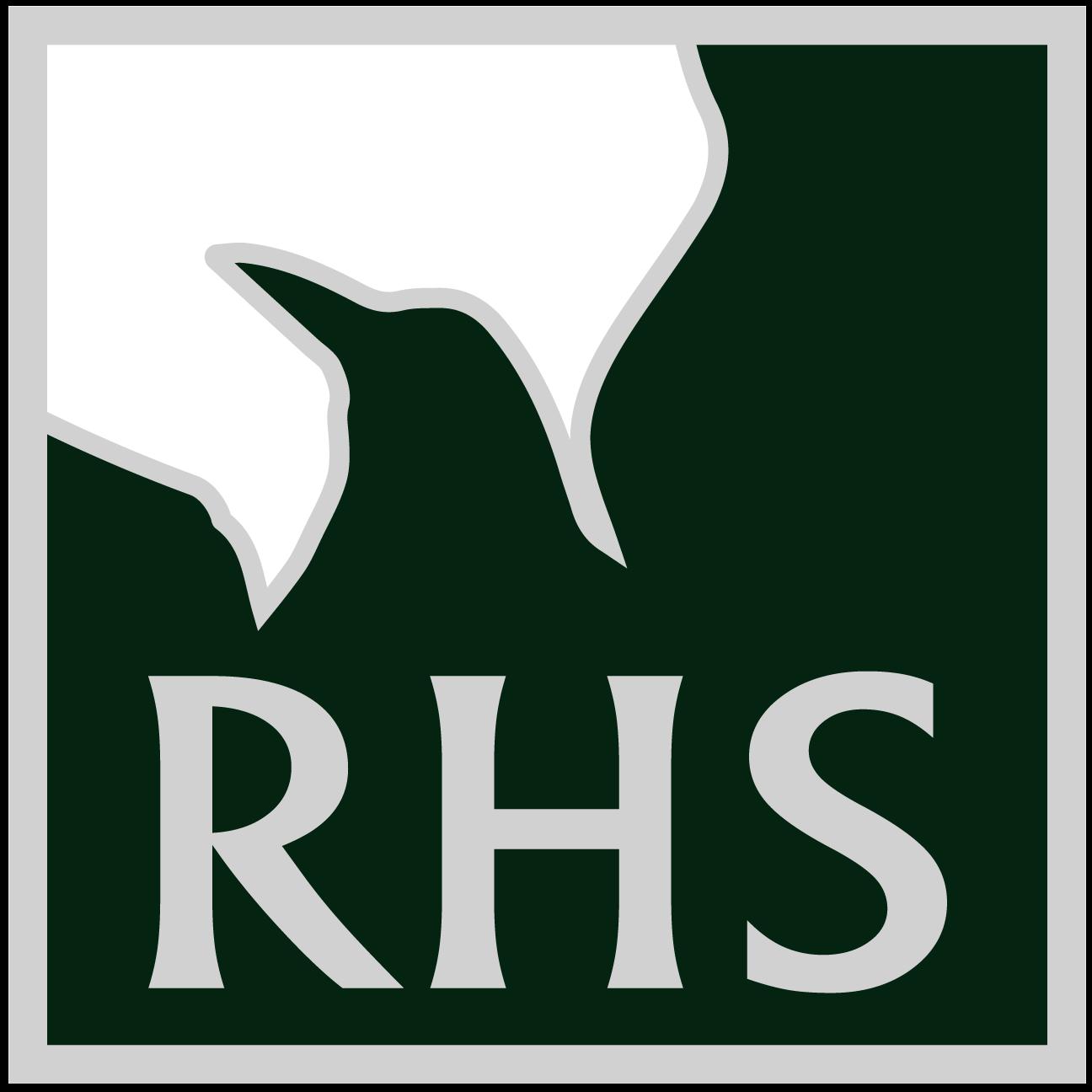
30
Renaissance School
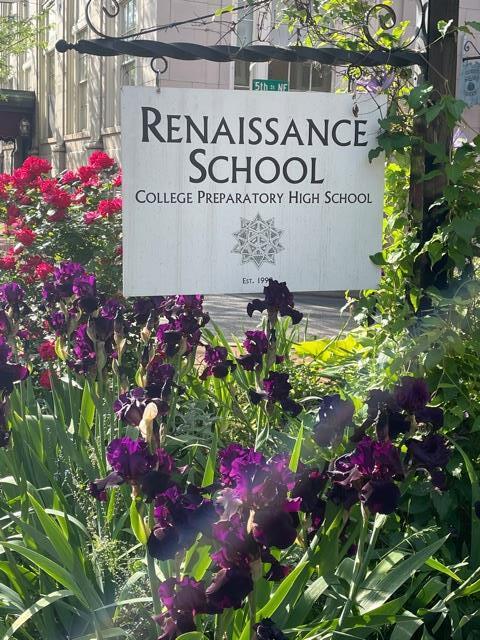
Description
Renaissance School is a college preparatory high school for curious and passionate students who are advanced in the arts, sciences, and/or humanities. It emphasizes both broad and deep learning through a balanced program equally strong in the arts and academics. Renaissance School embraces the whole student through differentiated and experiential learning and emphasizes creativity, critical thinking, and collaboration.
Students and faculty alike are a friendly community of independent thinkers and learners. There is a mutual respect and appreciation between students, faculty, the parent council, and Board of Directors. This support carries into special traditions including Ninth Week, Arts Practicum, and our two-year Independent Study program. You can learn more about these compelling programs by exploring the school’s website.
Renaissance School has had a 100 percent college acceptance rate for graduating seniors, ranging from Harvard University to Berklee College of Music. The average in grant and scholarship offers per applying student for the class of 2021 is $284,000 with some receiving full-tuition scholarships at the college of their choice. Renaissance School offers a remarkable highschool experience to students who want to be engaged in life to the fullest.
Renaissance School is located in beautiful historic downtown Charlottesville, Virginia. Its central location enables it to have a campus that includes the Jefferson Madison Regional Library, the McGuffey Art Center, Live Arts, Light House Studios, Music Resource Center, ACAC Fitness and Wellness, local galleries, great cafés and restaurants, convenient bus access to UVA and PVCC campuses, and so much more that Charlottesville has to offer.
31
2023-2024 RENAISSANCE SCHOOL LEADERSHIP TEAM
Head of School
Dr. Sara Johnson
sjohnson@renaissanceschool.org
Executive Assistant to the Head, Office Manager
Richelle Claiborne
rclaiborne@renaissanceschool.org
Director of Finance and Operations, Registrar
Lady Keller
lkeller@renaissanceschool.org
Dean of Academics
Bethany Farris
bfarris@renaissanceschool.org
Dean of Students, Diversity & Inclusion
Welford McLellan, Jr.
wmclellanjr@renaissanceschool.org
Director of Facilities and Information Technology
Steve Haske
shaske@renaissanceschool.org
32
RENAISSANCE SCHOOL FACULTY & STAFF
Emily Kate Avakian (English, Native American History) eavakian@renaissanceschool.org
Richelle Claiborne (Executive Assistant to the Head/Office Manager, Performing Arts) rclaiborne@renaissanceschool.org
Sally Duncan (History, Independent Study, Senior Thesis) sduncan@renaissanceschool.org
Bethany Farris (Academic Dean, Advanced Mathematics, Science) bfarris@renaissanceschool.org
Dr. Carolyn Fay (French) cfay@renaissanceschool.org
Rick France (French) rfrance@renaissanceschool.org
Giselle Gautreau (Art) ggautreau@renaissanceschool.org
Sarah Goodbar (English) sgoodbar@renaissanceschool.org
Dr. Helen Halladay (Science) nhalladay@renaissanceschool.org
Steve Haske (Building & IT, Marketing) shaske@renaissanceschool.org
Thomas Inigo (Tri Coach) tri@renaissanceschool.org
33
RENAISSANCE SCHOOL FACULTY & STAFF (con’t)
Dr. Sara Johnson (Head of School, College Counseling) sjohnson@renaissanceschool.org
Lady Keller (Director of Finance and Operations, Registrar, Yoga) lkeller@renaissanceschool.org
Joaquin Litzenberger (Spanish, Chess Coach) jlitzenberger@renaissanceschool.org
Welford McLellan, Jr. (Dean of Students, Civic Engagement, Physical Activities) wmclellanjr@renaissanceschool.org
Anna Minutella (Sciences) aminutella@renaissanceschool.org
Jeffrey Prado (Integrated Mathematics) jprado@renaissanceschool.org
Jay Pun (Music Performance) jpun@renaissanceschool.org
Louis Tanner (History) ltanner@renaissanceschool.org














